Speakers
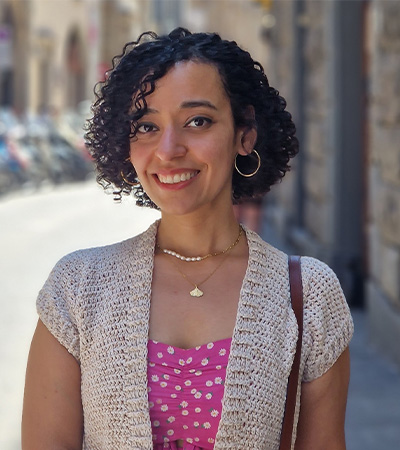
Sahar Abdelnabi
Sahar Abdelnabi is an AI security researcher at Microsoft. She completed her PhD at CISPA Helmholtz Center for Information Security, advised by Prof. Dr. Mario Fritz, and obtained her MSc degree at Saarland University.
She is interested in the broad intersection of machine learning with security, safety, and sociopolitical aspects. This includes the following areas: 1) Understanding, probing, and mitigating the failure modes of machine learning models, their biases, and their misuse scenarios. 2) How machine learning models could amplify or help counter existing societal and safety problems (e.g., misinformation, biases, stereotypes, cybersecurity risks, etc.). 3) Emergent safety challenges posed by new foundation and large language models.

Jo Van Bulck
Jo Van Bulck is a professor in the DistriNet lab at the Department of Computer Science of KU Leuven, Belgium. His research explores attacks and defenses at the hardware-software boundary, with particular attention to privileged side channels in trusted execution environments.
Jo’s research has uncovered several innovative attack vectors in commodity Intel x86 processors that have led to microcode and silicon mitigations in hardware, as well as software patches in major operating systems and compilers.

Maria Eichlseder
Maria Eichlseder is an associate professor at Graz University of Technology. Her research interests include the design and cryptanalysis of symmetric cryptographic algorithms, such as hash functions and authenticated encryption algorithms and their underlying primitives. She co-designed Ascon, a lightweight authenticated cipher that was selected by NIST as the new standard for lightweight cryptography in 2023.
She is currently particularly interested in developing techniques and automated tools for the cryptanalysis of unkeyed primitives in the context of her ERC Starting Grant KEYLESS.

Georg Fuchsbauer
Georg Fuchsbauer is an associate professor at TU Wien, where he leads the WWTF project COnFIDE (Cryptographic Foundations of Privacy in Distributed Ledgers). He did his PhD, supervised by David Pointcheval, at ENS Paris, to where he returned as an Inria researcher after postdocs at Bristol University, UK, and IST Austria. Georg works in public-key cryptography, with a focus on privacy and authentication, on topics like digital signatures, zero-knowledge proofs, electronic currencies and blockchain protocols.

Daniel Gruss
Daniel Gruss (@lavados) is a University Professor at Graz University of Technology. He loves teaching and research of system-level topics including side channels and transient execution attacks. He implemented the first remote fault attack running in a website, known as Rowhammer.js.
His research team was one of the teams that found the Meltdown and Spectre bugs published in early 2018. In 2023, he received an ERC Starting Grant to research the sustainability of security. He frequently speaks at top international venues.

David Oswald
David Oswald is a Full Professor in the Centre for Cyber Security and Privacy at the University of Birmingham, UK. His main field of research is the security of embedded systems and trusted execution. On the one hand, the focus is on attack methods that exploit weaknesses in the physical implementation of mathematically secure cryptographic algorithms. Those techniques include both (passive) side-channel analysis and (active) fault injection, as well as reverse engineering.
On the other hand, David is working on the practical realization of security systems in embedded applications. His research on vulnerabilities of various widespread systems (e.g. DESFire RFID smartcards, VW/Hitag2 RKE systems, and Intel SGX) has created awareness for the crucial importance of security among developers of embedded devices.

Fabio Pierazzi
Dr. Fabio Pierazzi is an Associate Professor in Information Security at UCL Computer Science. His research interests are at the intersection of systems security and machine learning, with a particular emphasis on settings in which attackers adapt quickly to new defenses (i.e., high non-stationarity, adaptive attackers).
He extensively worked in network modeling for intrusion detection, as well as malware detection techniques through different machine learning abstractions, and on understanding how to overcome limitations of applying machine learning for identifying and explaining sophisticated attacks.
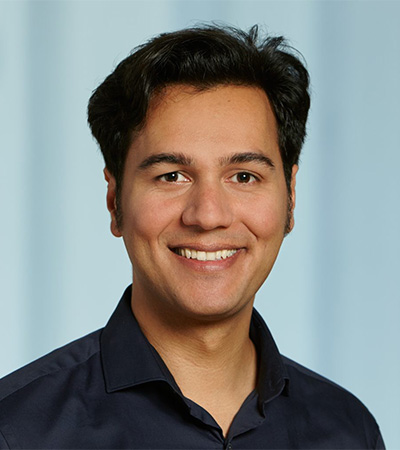
Kaveh Razavi
Kaveh Razavi is an assistant professor (tenure track) in the Department of Information Technology and Electrical Engineering at ETH Zürich. He is generally interested in computer systems and security, with a special focus on commodity hardware and operating systems.
Razavi and his collaborators have received many awards for their research over the years. These include best paper awards at IEEE S&P and MICRO (among others), and five Pwnies, four for the most innovative research. His research was also awarded two early-career personal grants (a Dutch Veni and an ERC Starting) and the Jochen Liedtke young researcher award. ETH students presented him with the Golden Owl award in 2022 for his teaching efforts.
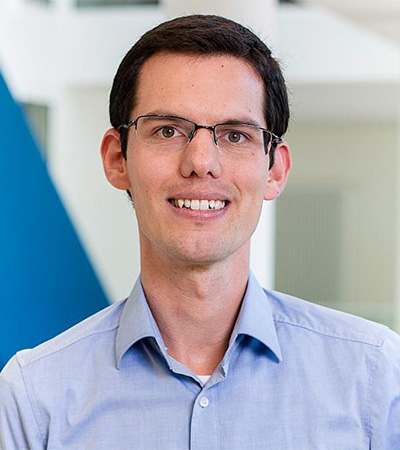
Christian Rossow
Christian Rossow is a faculty member at the Helmholtz Center for Information Security (CISPA), where he leads the System Security research group in Dortmund, Germany. He also holds professorships in the Computer Science departments of both Saarland University and TU Dortmund. He earned his PhD from VU Amsterdam in 2013, under the supervision of Maarten van Steen and Herbert Bos. His research group primarily focuses on software security (including exploitation and defenses), Network Security and Privacy, as well as Denial-of-Service attacks and their mitigation.

Yang Zhang
Yang Zhang is a tenured faculty member at CISPA Helmholtz Center for Information Security, Germany. His research concentrates on trustworthy machine learning including privacy, security and more recenlty LLM safety.
Moreover, he works on measuring and understanding misinformation and unsafe content like hateful memes on the Internet. His research has been featured in major media outlets including the Washington Post and New Scientist. He has also received the NDSS 2019 distinguished paper award and the CCS 2022 best paper award runner-up.
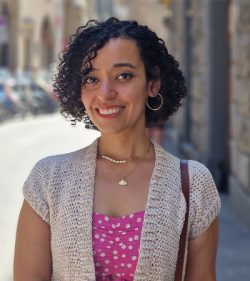
Sahar Abdelnabi
Sahar Abdelnabi is an AI security researcher at Microsoft. She completed her PhD at CISPA Helmholtz Center for Information Security, advised by Prof. Dr. Mario Fritz, and obtained her MSc degree at Saarland University.
She is interested in the broad intersection of machine learning with security, safety, and sociopolitical aspects. This includes the following areas: 1) Understanding, probing, and mitigating the failure modes of machine learning models, their biases, and their misuse scenarios. 2) How machine learning models could amplify or help counter existing societal and safety problems (e.g., misinformation, biases, stereotypes, cybersecurity risks, etc.). 3) Emergent safety challenges posed by new foundation and large language models.

Jo Van Bulck
Jo Van Bulck is a professor in the DistriNet lab at the Department of Computer Science of KU Leuven, Belgium. His research explores attacks and defenses at the hardware-software boundary, with particular attention to privileged side channels in trusted execution environments.
Jo’s research has uncovered several innovative attack vectors in commodity Intel x86 processors that have led to microcode and silicon mitigations in hardware, as well as software patches in major operating systems and compilers.
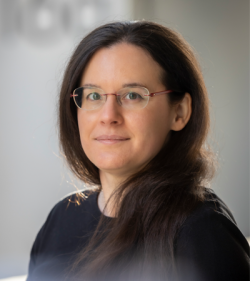
Maria Eichlseder
Maria Eichlseder is an associate professor at Graz University of Technology. Her research interests include the design and cryptanalysis of symmetric cryptographic algorithms, such as hash functions and authenticated encryption algorithms and their underlying primitives. She co-designed Ascon, a lightweight authenticated cipher that was selected by NIST as the new standard for lightweight cryptography in 2023.
She is currently particularly interested in developing techniques and automated tools for the cryptanalysis of unkeyed primitives in the context of her ERC Starting Grant KEYLESS.

Georg Fuchsbauer
Georg Fuchsbauer is an associate professor at TU Wien, where he leads the WWTF project COnFIDE (Cryptographic Foundations of Privacy in Distributed Ledgers). He did his PhD, supervised by David Pointcheval, at ENS Paris, to where he returned as an Inria researcher after postdocs at Bristol University, UK, and IST Austria. Georg works in public-key cryptography, with a focus on privacy and authentication, on topics like digital signatures, zero-knowledge proofs, electronic currencies and blockchain protocols.
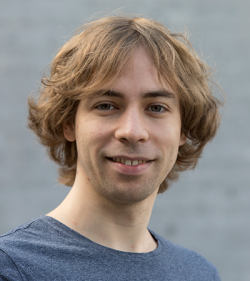
Daniel Gruss
Daniel Gruss (@lavados) is a University Professor at Graz University of Technology. He loves teaching and research of system-level topics including side channels and transient execution attacks. He implemented the first remote fault attack running in a website, known as Rowhammer.js.
His research team was one of the teams that found the Meltdown and Spectre bugs published in early 2018. In 2023, he received an ERC Starting Grant to research the sustainability of security. He frequently speaks at top international venues.

David Oswald
David Oswald is a Full Professor in the Centre for Cyber Security and Privacy at the University of Birmingham, UK. His main field of research is the security of embedded systems and trusted execution. On the one hand, the focus is on attack methods that exploit weaknesses in the physical implementation of mathematically secure cryptographic algorithms. Those techniques include both (passive) side-channel analysis and (active) fault injection, as well as reverse engineering.
On the other hand, David is working on the practical realization of security systems in embedded applications. His research on vulnerabilities of various widespread systems (e.g. DESFire RFID smartcards, VW/Hitag2 RKE systems, and Intel SGX) has created awareness for the crucial importance of security among developers of embedded devices.
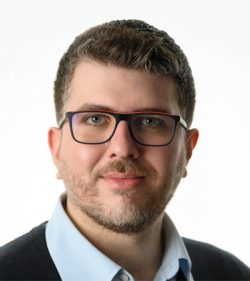
Fabio Pierazzi
Dr. Fabio Pierazzi is an Associate Professor in Information Security at UCL Computer Science. His research interests are at the intersection of systems security and machine learning, with a particular emphasis on settings in which attackers adapt quickly to new defenses (i.e., high non-stationarity, adaptive attackers).
He extensively worked in network modeling for intrusion detection, as well as malware detection techniques through different machine learning abstractions, and on understanding how to overcome limitations of applying machine learning for identifying and explaining sophisticated attacks.
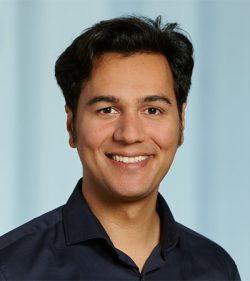
Kaveh Razavi
Kaveh Razavi is an assistant professor (tenure track) in the Department of Information Technology and Electrical Engineering at ETH Zürich. He is generally interested in computer systems and security, with a special focus on commodity hardware and operating systems.
Razavi and his collaborators have received many awards for their research over the years. These include best paper awards at IEEE S&P and MICRO (among others), and five Pwnies, four for the most innovative research. His research was also awarded two early-career personal grants (a Dutch Veni and an ERC Starting) and the Jochen Liedtke young researcher award. ETH students presented him with the Golden Owl award in 2022 for his teaching efforts.
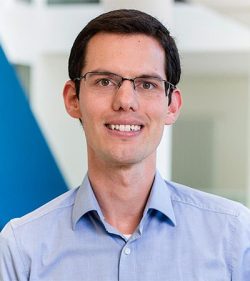
Christian Rossow
Christian Rossow is a faculty member at the Helmholtz Center for Information Security (CISPA), where he leads the System Security research group in Dortmund, Germany. He also holds professorships in the Computer Science departments of both Saarland University and TU Dortmund. He earned his PhD from VU Amsterdam in 2013, under the supervision of Maarten van Steen and Herbert Bos. His research group primarily focuses on software security (including exploitation and defenses), Network Security and Privacy, as well as Denial-of-Service attacks and their mitigation.

Yang Zhang
Yang Zhang is a tenured faculty member at CISPA Helmholtz Center for Information Security, Germany. His research concentrates on trustworthy machine learning including privacy, security and more recenlty LLM safety.
Moreover, he works on measuring and understanding misinformation and unsafe content like hateful memes on the Internet. His research has been featured in major media outlets including the Washington Post and New Scientist. He has also received the NDSS 2019 distinguished paper award and the CCS 2022 best paper award runner-up.

Sahar Abdelnabi
xxx

Jo Van Bulck
xxx

Maria Eichlseder
Maria Eichlseder is an associate professor at Graz University of Technology. Her research interests include the design and cryptanalysis of symmetric cryptographic algorithms, such as hash functions and authenticated encryption algorithms and their underlying primitives. She co-designed Ascon, a lightweight authenticated cipher that was selected by NIST as the new standard for lightweight cryptography in 2023. She is currently particularly interested in developing techniques and automated tools for the cryptanalysis of unkeyed primitives in the context of her ERC Starting Grant KEYLESS.

Daniel Gruss
Daniel Gruss (@lavados) is a University Professor at Graz University of Technology. He loves teaching and research of system-level topics including side channels and transient execution attacks. He implemented the first remote fault attack running in a website, known as Rowhammer.js. His research team was one of the teams that found the Meltdown and Spectre bugs published in early 2018. In 2023, he received an ERC Starting Grant to research the sustainability of security. He frequently speaks at top international venues.

David Oswald
xxx

Fabio Pierazzi
xxx

Fabio Pierazzi
xxx
Kaveh Razavi
Dr. Fabio Pierazzi is an Associate Professor in Information Security at UCL Computer Science. His research interests are at the intersection of systems security and machine learning, with a particular emphasis on settings in which attackers adapt quickly to new defenses (i.e., high non-stationarity, adaptive attackers). He extensively worked in network modeling for intrusion detection, as well as malware detection techniques through different machine learning abstractions, and on understanding how to overcome limitations of applying machine learning for identifying and explaining sophisticated attacks.

Yang Zhang
Yang Zhang is a tenured faculty member at CISPA Helmholtz Center for Information Security, Germany. His research concentrates on trustworthy machine learning including privacy, security and more recenlty LLM safety. Moreover, he works on measuring and understanding misinformation and unsafe content like hateful memes on the Internet. His research has been featured in major media outlets including the Washington Post and New Scientist. He has also received the NDSS 2019 distinguished paper award and the CCS 2022 best paper award runner-up.
